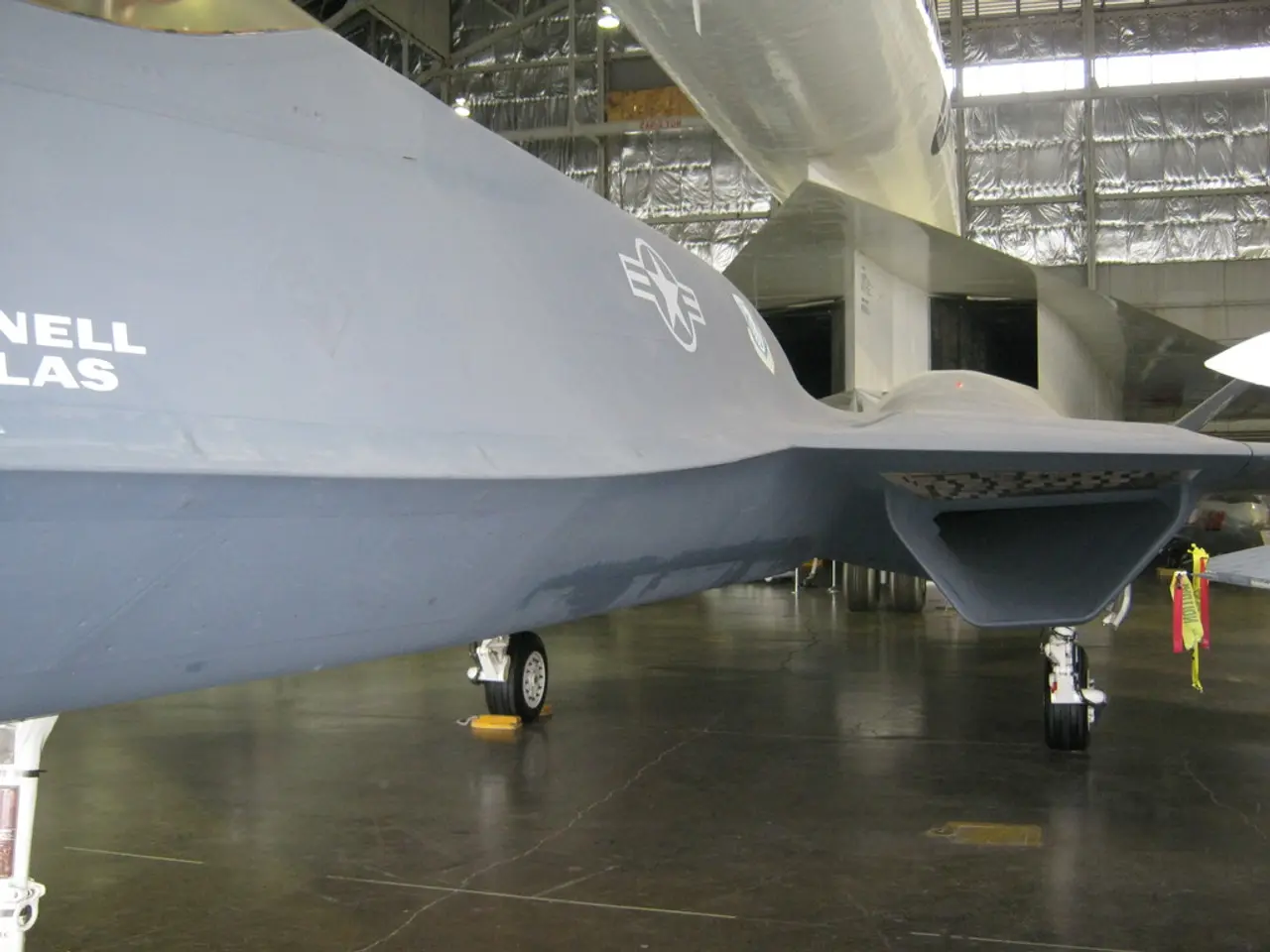Hydrogen as a Key Factor in Decarbonising Singapore's Aviation Sector
Singapore Pioneers Hydrogen Fuel for Aviation Decarbonization
In a significant move towards a greener future, the Singapore Hydrogen Cooperation Committee has identified scenarios that could support the large-scale supply of liquid hydrogen for aviation at Changi Airport. The committee, formed in February 2022 by Airbus, Changi Airport Group, Civil Aviation Authority of Singapore (CAAS), and Linde, is actively advancing hydrogen fuel as a key solution for aviation decarbonization.
The committee has been examining various aspects of hydrogen technology for aviation, including regional and local market demand and supply for hydrogen, the hydrogen supply chain and infrastructure requirements, and the potential considerations for establishing a successful hydrogen ecosystem for aviation in Singapore.
By 2040s, Singapore's aviation sector may consume up to 50 tonnes of liquid hydrogen daily, and this figure could increase to 600 tonnes per day beyond 2050. The technology to use liquid hydrogen to power aircraft is currently under development and will only be applied on future generations of large commercial aircraft.
The maturity of Airbus' ZEROe aircraft demonstrator, a hydrogen-powered plane, is a significant signpost in the development of hydrogen aircraft technology. The committee's early technical feasibility study is useful to ensure that Singapore is well prepared to incorporate liquid hydrogen as part of its aviation decarbonisation strategy when the technology becomes mature and feasible.
The committee also aims to monitor the relative price of liquid hydrogen as an alternative aircraft fuel. They will be watching the development of hydrogen technology for aviation around several signposts, including the maturity of hydrogen aircraft technology, the development of associated Concepts of Operations (CONOPs), safety regulatory frameworks and standards, the development of a robust and commercial-scale liquid hydrogen supply chain, and the readiness of other airports for liquid hydrogen aircraft operations.
Other key factors such as the hydrogen readiness levels at potential destination airports and airlines' commercial considerations would also be important to realise the eventual hydrogen-powered flights between Changi Airport and other airports in the region.
Singapore's government investment platform GenZero and its partnerships, such as the Green Fuel Forward initiative with the World Economic Forum and key industry players, demonstrate the country's commitment to cross-sector collaboration to scale up sustainable fuels including hydrogen and SAF across Asia-Pacific aviation.
Neste’s Singapore refinery, the world’s largest SAF production facility, exemplifies Singapore’s strategy of prioritizing the development and scaling of sustainable aviation fuels. The refinery has a capacity of 1 million tons of SAF annually and partnerships facilitating SAF supply to airlines and cargo operators like DHL. This infrastructure forms a critical foundation for shifting aviation fuel sources within the region.
The committee's work with major stakeholders such as Airbus, Changi Airport Group, CAAS, and Linde aims to create an integrated value chain supporting hydrogen adoption—from production to airport fueling—helping Singapore position itself as a regional hub for hydrogen aviation technology development and deployment.
In summary, Singapore’s current and future plans for aviation decarbonization include scaling SAF production and use, establishing hydrogen fuel infrastructure and technology roadmaps, collaborating with technology developers like Airbus and industrial partners like Linde, leveraging policy frameworks led by CAAS and operational capabilities at Changi Airport to adopt hydrogen-powered aviation solutions, and regional cooperation and investment initiatives to build a sustainable aviation ecosystem based on hydrogen and SAF. These coordinated efforts place Singapore at the forefront of integrating hydrogen fuel into aviation as part of its broader decarbonization strategy.
According to Sabine Klauke, Chief Technology Officer of Airbus, stakeholders in the Asia-Pacific region are increasingly taking greater interest in making significant investments into hydrogen, developing new technologies, and establishing supply chains. This collaborative approach is crucial for a sustainable future of aviation in Singapore and beyond.
Technology plays a pivotal role in the committee's examinations, as they assess the maturity of hydrogen aircraft technology and the development of hydrogen technology for aviation. The maturity of Airbus' ZEROe aircraft demonstrator is a significant signpost in this regard.
The committee also monitors the relative price of liquid hydrogen as an alternative aircraft fuel, recognizing it as a key factor that will influence the adoption of hydrogen fuel in aviation.




